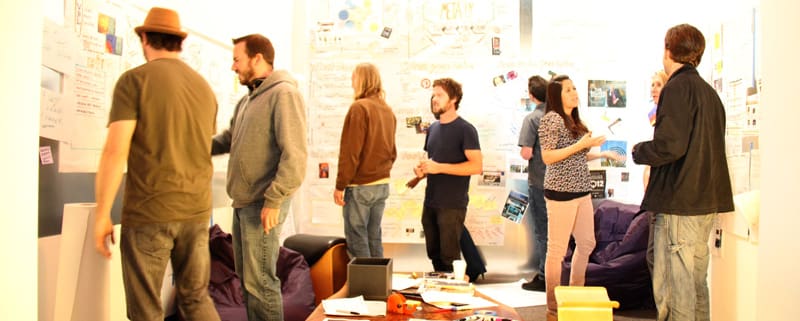Whatever Happened To Thinking? {by Ant Creed}
In a knowledge-based economy, I’d expect to see and hear a lot about thinking, and how thoughts are being translated into actions that deliver business results. Yet relatively little thinking seems to be going on.
This makes no sense. Knowledge workers are paid to think, so why aren’t more of them thinking more of the time? Lots of people are analyzing data, then acting on the results. Nothing wrong with that, right? Yet surprisingly often, there’s little or no thought going into what the data represents: are we measuring what we should measure, so we can learn something about the problem we need to solve? Or are we merely looking at what we can measure? Are we interpreting objectively, or looking for what we want to find?
Data isn’t information, that’s why it’s called data. Consequently, we must translate data into information for it to become valuable. Information is the reduction of uncertainty (Shannon, 1956). Yet many analyses and interpretations do nothing to reduce uncertainty – on the contrary, they create more uncertainty (recognized or not) than they eliminate. Transforming data into information requires thinking, broadly and deeply, otherwise our actions will be ill-informed, misled and misguided.
Action is the new black. So many people are doing so much yet having so little effect. People are incredibly busy, but their action is being confused with accomplishment.
Getting worthwhile things done requires thinking through and weighing what matters, not just rushing at something, being busy and hoping for the best. For example, Eric Reiss’s book “The Lean Start-up” has become a playbook for many corporations, as they scramble to innovate and gain or maintain an edge. Countless ‘experiments’ are being conducted, but even Reiss himself has expressed dismay at how thoughtless (and thus pointless) many of the experiments are. Reading business books is not a substitute for thinking – there are no recipes!
What prevents us from being thinkers? A little thinking time upfront saves tons of time downstream, and most people know that. So why do we act before thinking, reducing our chances of accomplishment? If we lack the time for thinking, we must do a better job of delegating or collaborating and prioritizing. If we lack resources, we must do more thinking, not less, so we can figure out how to use what we have more efficiently and effectively.
When DDSTUDIO is hired, our first step is to hold an immersion workshop in which we collaborate with our clients to think about many questions. We spend time exploring the problem/opportunity space, and rarely stray into the solution space. What problem does the client want to solve? Is it the right problem, or just an obvious problem? Are there opportunities to be exploited that might enable us to ignore or eliminate the problem? How would solving the problem further the client’s business strategy? What kinds of experience would improve business results? We think collaboratively with our clients before we get to work, so that both partners are confident that our time will be spent productively.
Invest in thinking, it needn’t take long and the ROI is frequently amazing.
Cheers,
Ant
Ant Creed is the GM, Experience Design for DDSTUDIO. His professional passion is the pursuit of growth through innovation supported by appropriate experience design. He’s spent his career leading and coaching cross-functional teams to envision future products and services, to create compelling experiences, and to pilot or launch these in the market. At DDSTUDIO, Ant is responsible for conceptualizing, designing, and implementing the experience design strategy. He leads the experience design team in the creation of captivating and unforgettable user experiences for the Company’s clients to share with consumers.




